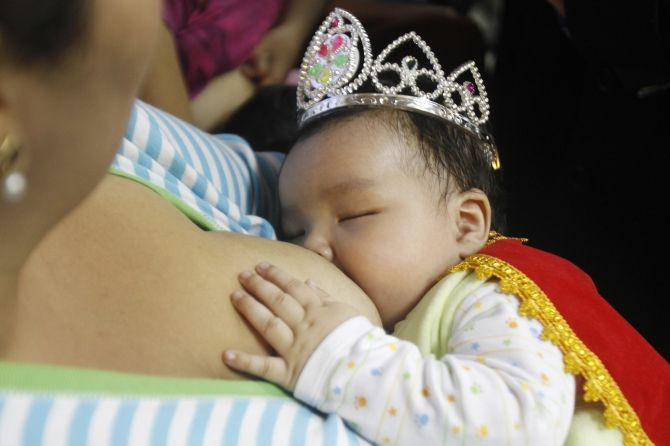Breastfed Infants Have Lower Risk of Depression as Adults

A new study from Germany indicates that breastfeeding infants may help to lower the likelihood of the development of depression as adults.
The study interviewed 52 people who were, on average, now 44 years old. Those 52 people were being treated for depression at an inpatient facility. The data from these people were compared with that of 106 people who had never been diagnosed with depression. Researchers considered participants as breastfed if either they or their mother claimed that they had been breastfed for longer than two weeks.
They found that of the group that had never been diagnosed with depression, 73 percent had been breastfed as infants. Comparatively, 46 percent of the people who suffered from depression had been breastfed. That association remained the same even when researchers controlled for other factors, like participants' age and gender, as well as their mothers' level of education.
Researchers also found that the length of time being breastfed did not appear to affect the risk of depression later.
Study researchers stop short of declaring breastfeeding itself the cause of this link, because they think that there are so many other factors that may contribute to the correlation. For example, breastfeeding may indicate a better mother-child relationship, and other portions of that relationship could provide a cause of increased depression risk. They also said that breastfeeding may increase behaviors in women that may lower depression risk in their children.
There also exists the possibility that breastfeeding may promote brain development in such a way that depression is prevented. Indeed, depression has been linked to increased brain connections, as reported here at Medical Daily.
Previous studies on breastfeeding of infants have linked it to lower risk of obesity and hypertension in adults. Research has also indicated that early weaning may lead to an increased risk of alcohol abuse.
The study was published in Psychotherapy and Psychosomatics.
Published by Medicaldaily.com



























